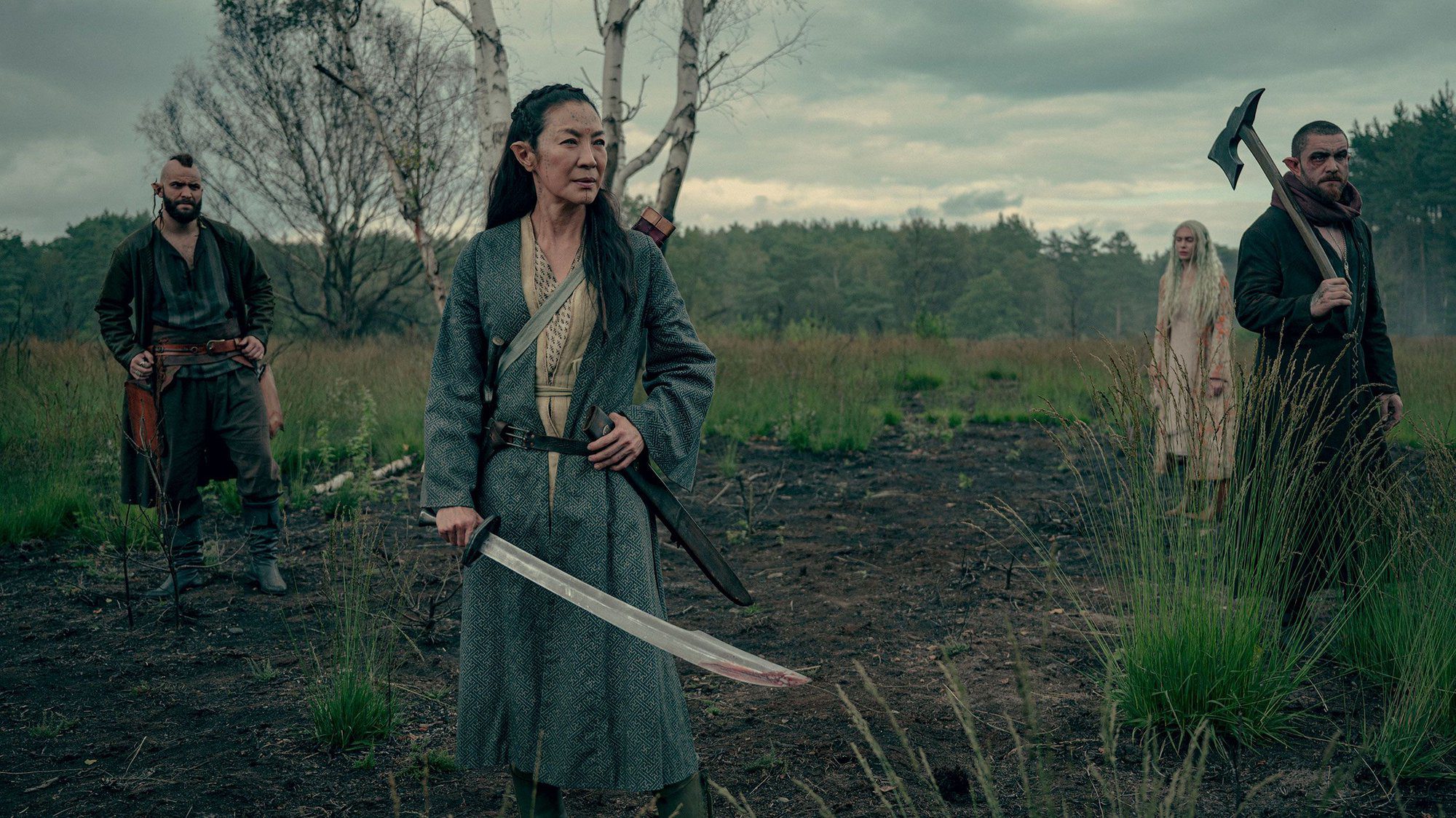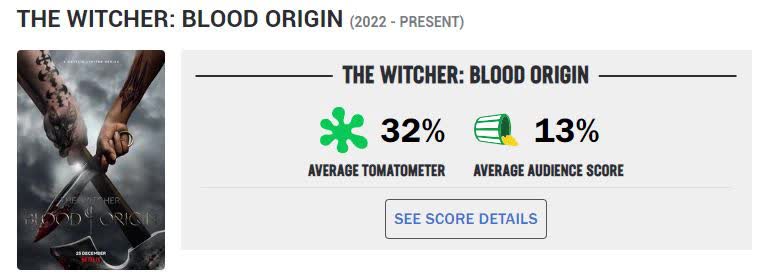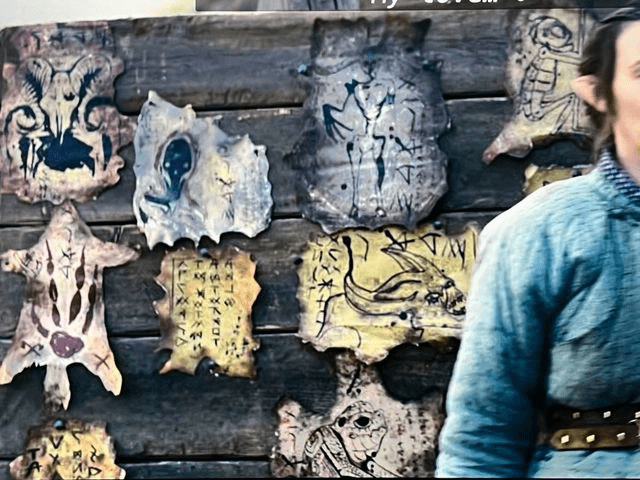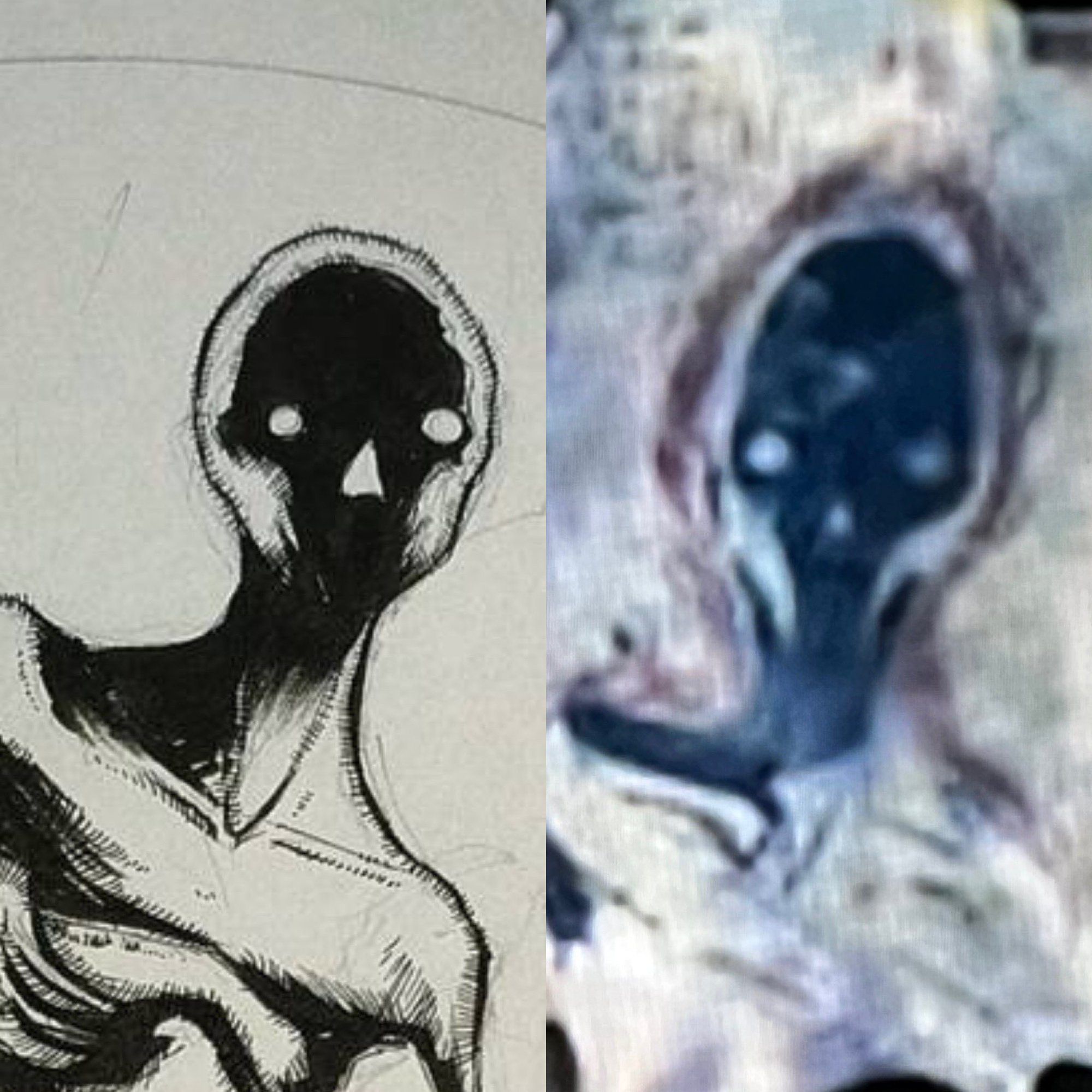The role of the Witcher has returned on Netflix as of December 25 with the prequel project The Witcher: Blood Origin. Set against the backdrop of 1200 years prior to the events of the main series, this film has provided viewers with a deeper insight into the history of the Continent, the emergence of the first witcher, the origins of Elder Blood, and many other significant plot points.

With the successes that The Witcher achieved after its first two seasons, it’s no surprise that Blood Origin became one of the most anticipated titles on Netflix in 2022. However, unlike its “brother” series or animated project The Witcher: Nightmare of the Wolf, what Blood Origin brought to the table was merely a low point in terms of quality and received overwhelmingly negative reviews, alongside criticisms related to copyright issues.
The Witcher: Blood Origin completely failed to impress critics and audiences alike
Released during the holiday season, The Witcher: Blood Origin quickly plummeted on Netflix’s rankings in its first week of airing. It previously even reached the top spot of the Top 10 most-watched films, surpassing hits like Wednesday and Alice in Borderland Season 2.
However, Forbes noted that this phenomenon is a double-edged sword, as the audience viewership was high, but the failure rate was becoming increasingly severe. The Witcher: Blood Origin not only faced significant backlash from major publications but also marked its place in history as the lowest-rated series in Netflix’s history to date.

Specifically, on Rotten Tomatoes, the prequel of The Witcher received a “rotten” rating of 32% (critic score) and 13% audience score. The situation wasn’t much better on other websites, for example, IMDb rated it at 4.4/10 after 27,000 reviews, and 45 points from 15 reviewers and 1.1 points from 256 audience votes on Metacritic. Clearly, in terms of numbers, Blood Origin wasn’t the most well-received offering Netflix had during the Christmas season of 2022.
Along with the low scores, the harsh criticisms came from various reviewers from major publications. Erik Kain of Forbes commented: “A short series with no value compared to the main series, and it doesn’t even relate to the original source material. It feels overly brief and includes too many unnecessary changes to the landscape of the Witcher universe.”
Another writer, Narayan Liu, echoed a similar sentiment and pointed out that Blood Origin overlooked the most defining traits of The Witcher: “Netflix has brought a new area of the Continent to life, but it mainly focuses on the rapid introduction of numerous new characters while neglecting the importance of world-building and the foundational elements in developing plots and narratives.”
Ani Bundel, an editor at NBC, believes that Blood Origin is a significant misstep for The Witcher and could affect the future of the series: “A violent film without necessity. It seems they have forgotten the key elements that made The Witcher successful. This is truly a worrying sign for this franchise, especially after losing main actor Henry Cavill.”
The Witcher: Blood Origin faces copyright infringement issues

Despite the failure in the public’s eyes, The Witcher: Blood Origin had to face serious copyright infringement issues. About a week after its launch, Netflix was sued for using the artwork of Shawn Cross without permission.
On Twitter, Cross shared screenshots of the final scenes in Blood Origin and criticized the production team for allegedly using his work to depict the new monsters appearing in the Continent. The artist even tagged the official account of The Witcher on Twitter, but received no response.
Cross acknowledged that this is not entirely Netflix’s fault. It’s possible that other entities copied, modified his work, and submitted it for the creative team of Blood Origin without awareness or verification of the sources of the referenced artwork. Cross stated that this situation occurs quite frequently with the animation industry, especially with lesser-known artists.

Cross’s tweet immediately garnered attention from the online community on Twitter, with nearly 500,000 views, over 1000 comments, and more than 7000 likes. This outpouring of support is not merely a small detail but a significant reflection of the community’s dissatisfaction with how Netflix has developed the narrative for The Witcher: Blood Origin.
“As a content creator, I think there should be legal regulations. If I were in their position, I would definitely do so, and many law firms would likely take on this case, as the likelihood of them losing is quite high without needing too many resources. Just let them know (Netflix) that I’m here after they have appropriated my work.,” commented user Maximtoch.
“Netflix Witcher continues to ‘score points’ poorly. The narrative is shallow, lacks depth, and has already lost Cavill. Just let this series die off, seriously.,” shared user Buffalo Billy.
As of now, Netflix has yet to issue an official statement regarding this matter. And the incident further tarnishes the reputation of The Witcher: Blood Origin in the eyes of viewers.
Underlying reasons for the disappointing failure of The Witcher: Blood Origin

The Witcher: Blood Origin encountered numerous significant challenges during production. Netflix was forced to shorten the number of episodes from 6 to 4, instead of the originally planned 6 to have a debut during the Christmas season of 2022. This inadvertently caused the storyline to feel rushed, skipping over many important details and events, ultimately delivering a work that was overly hasty and lacking depth.
Alongside this, the quality of the series was not rated highly, especially after The Witcher Season 2 brought a much brighter image and character depth. In other words, even regarding the narrative, Blood Origin fell short in the eyes of audiences.
With such limited screen time, Blood Origin chose to introduce up to 7 different characters, which were often not well developed. These characters were entirely original creations by Netflix for its series, having no basis in the original material. This led to a significant disconnect with fans of the source material, who generally view these characters as “unnecessary”.
Thus, there was a need for more thorough exploration, more substantial appearances, and more dialogue that conveyed information to help the audience form a clearer understanding of the history and origins of the series.
However, what Netflix delivered was overly hasty, superficial, and failed to resonate with viewers. This has contributed to the significant disappointment surrounding Blood Origin, despite the involvement of the star Dương Tử Quỳnh – the most prominent actress in Hollywood in 2022.

Another reason contributing to Blood Origin not achieving the anticipated success was its release timing. The series aired while the fan community was still buzzing with the news of Henry Cavill’s departure from The Witcher after the conclusion of Season 3. There were far too many campaigns, too many movements calling for Netflix to retain the lead actor and adhere to the original material in upcoming seasons.
The shifting of creative directions away from the original source, especially in the second season, was considered the primary reason for Cavill’s decision to part ways with the iconic role of Geralt of Rivia.
Nonetheless, Netflix continued to engage in this artistic direction with Blood Origin – a series that entirely focused on original content from start to finish, even altering many details compared to the Witcher universe created by author Andrzej Sapkowski. This has left fans feeling disappointed and frustrated, as the contributions, criticisms, and constructive feedback have seemingly been disregarded by Netflix.
The main series of The Witcher is set to return with its third season in mid-2023. However, given the controversies surrounding the series, along with the complete failure of Blood Origin, it’s likely that audiences will approach this upcoming season with skepticism.
Source: GameRant, ScreenRant, Netflix



















